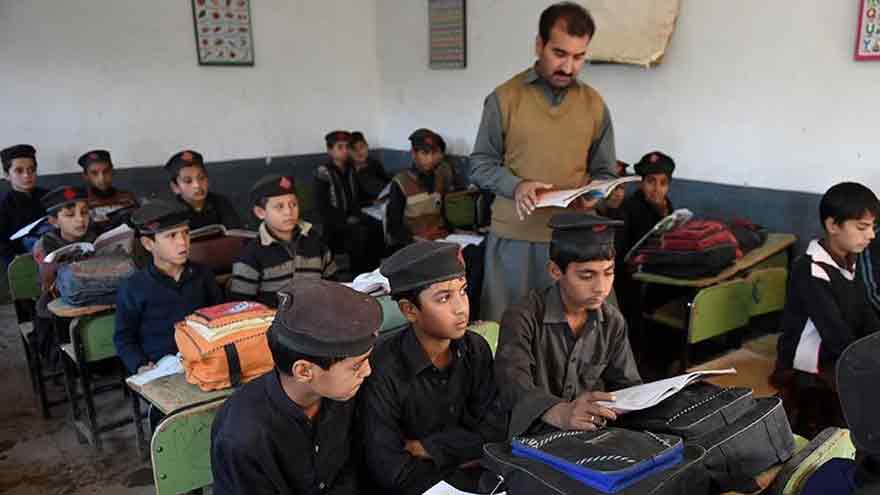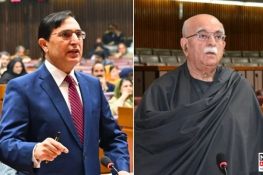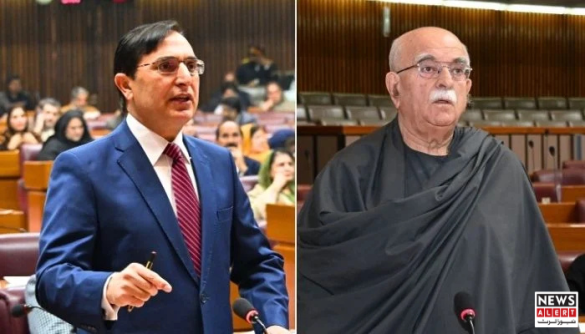Major Recruitment Drive Announced
The government of Pakistan’s northwestern province of Khyber Pakhtunkhwa has approved the hiring of 3,000 new teachers in public colleges. The decision was taken during a provincial cabinet meeting chaired by Chief Minister Ali Amin Gandapur, in what officials described as a significant step to address a long-standing teacher shortage.
According to the government, the appointments will be made on a temporary basis to ensure that the growing demand for qualified teaching staff in higher education institutions can be met without delay.
Financial Commitment and Eligibility
Barrister Saif, the provincial government’s spokesperson, confirmed that the recruitment drive will cost the treasury around 3 billion Pakistani rupees annually (approximately 10.8 million USD). He added that candidates holding associate degrees would also be eligible to apply, broadening the pool of potential applicants.
Similarly, young applicants in Punjab are encouraged to explore opportunities such as the Punjab Police Sub-Inspector 2025 vacancies, highlighting nationwide efforts to create new career opportunities for youth.
The move reflects increasing concern over the shortage of qualified faculty in the province’s public sector colleges. Over the past decade, Khyber Pakhtunkhwa’s higher education enrollment has risen steadily, while recruitment of teaching staff has lagged behind.
Outsourcing Low-Enrollment Institutions
Alongside the new hiring plan, the cabinet approved a pilot project to outsource schools and colleges with persistently low enrollment. This outsourcing initiative aims to improve efficiency and management in underperforming institutions without affecting the existing teaching workforce.
Officials stressed that teachers currently employed in public schools and colleges would not lose their jobs as a result of the plan. Students, they added, would continue to receive free education, ensuring that no additional financial burden falls on families.
Ensuring Quality Education
The provincial government framed the latest measures as part of a broader strategy to improve education quality in Khyber Pakhtunkhwa. The region has struggled with gaps in its education sector for many years, largely due to security challenges, budgetary constraints, and a rapidly growing youth population.
By recruiting more teachers, the government hopes to reduce classroom overcrowding and improve the student-to-teacher ratio. Education experts say this could significantly enhance the learning environment and academic outcomes, especially in rural districts where teacher shortages are most severe.
Broader Context of Pakistan’s Education Challenges
Pakistan has one of the youngest populations in the world, with over 64 percent under the age of 30. Yet the country consistently ranks low in global education indicators. According to UNESCO, nearly 22.8 million children in Pakistan remain out of school, one of the highest figures worldwide.
While primary and secondary education have received most policy attention, higher education institutions — especially in provinces like Khyber Pakhtunkhwa — continue to face structural weaknesses. These include limited faculty numbers, outdated curricula, and inadequate funding.
Observers argue that initiatives such as mass teacher recruitment are essential for bridging these gaps. However, sustainable reforms, including long-term contracts, training programs, and investment in digital learning infrastructure, will be critical to securing lasting improvements.
Looking Ahead
The announcement has been welcomed by education advocates and student groups in the province, who see it as an important step forward. Nevertheless, questions remain over whether temporary appointments will provide enough stability to attract and retain talented educators.
For now, the government maintains that the priority is to fill the urgent gaps in faculty numbers. With enrollment continuing to rise, the coming months will test whether this recruitment drive can deliver the quality education that Khyber Pakhtunkhwa’s young population urgently needs.















